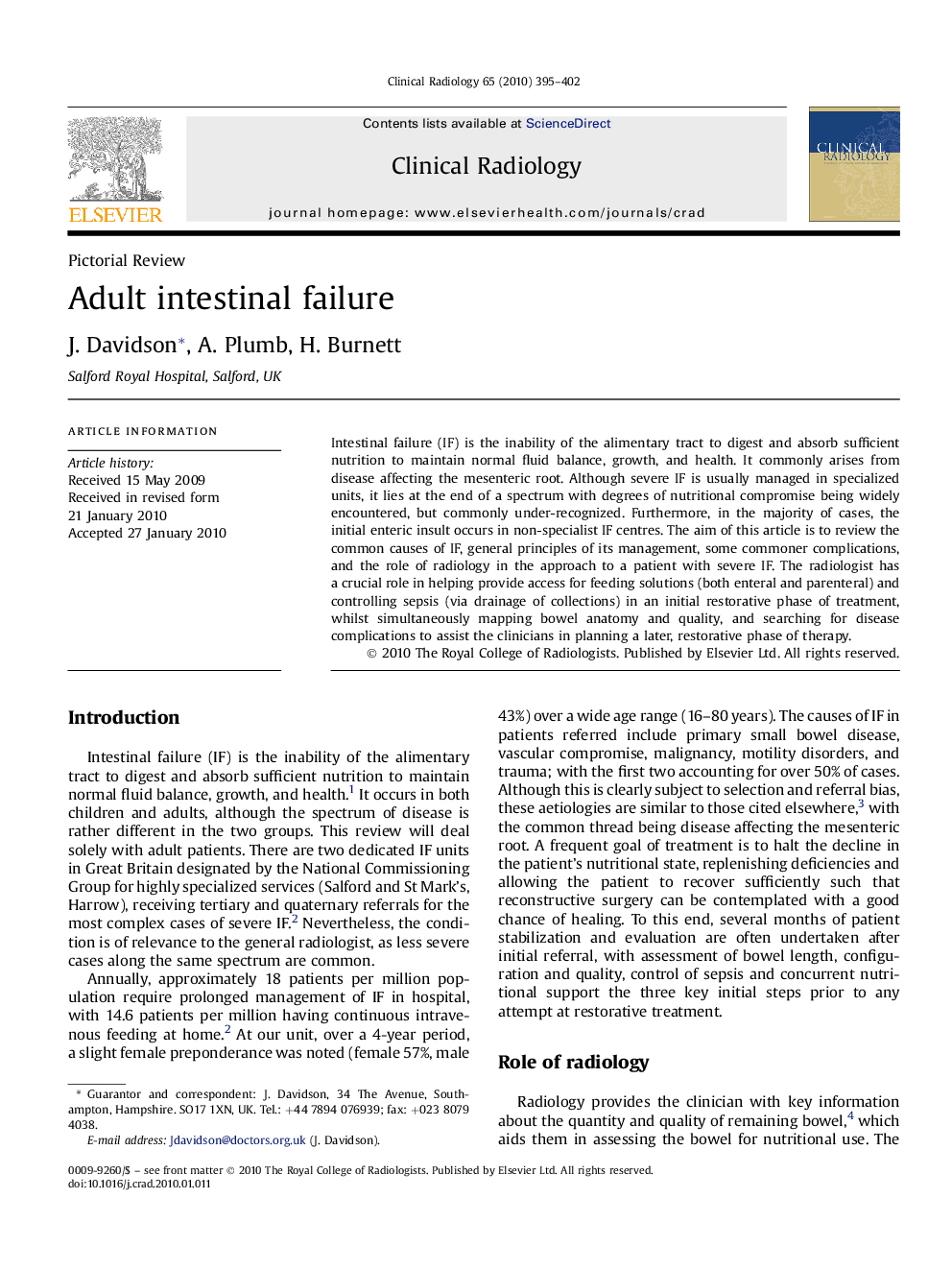| Article ID | Journal | Published Year | Pages | File Type |
|---|---|---|---|---|
| 3982537 | Clinical Radiology | 2010 | 8 Pages |
Intestinal failure (IF) is the inability of the alimentary tract to digest and absorb sufficient nutrition to maintain normal fluid balance, growth, and health. It commonly arises from disease affecting the mesenteric root. Although severe IF is usually managed in specialized units, it lies at the end of a spectrum with degrees of nutritional compromise being widely encountered, but commonly under-recognized. Furthermore, in the majority of cases, the initial enteric insult occurs in non-specialist IF centres. The aim of this article is to review the common causes of IF, general principles of its management, some commoner complications, and the role of radiology in the approach to a patient with severe IF. The radiologist has a crucial role in helping provide access for feeding solutions (both enteral and parenteral) and controlling sepsis (via drainage of collections) in an initial restorative phase of treatment, whilst simultaneously mapping bowel anatomy and quality, and searching for disease complications to assist the clinicians in planning a later, restorative phase of therapy.
